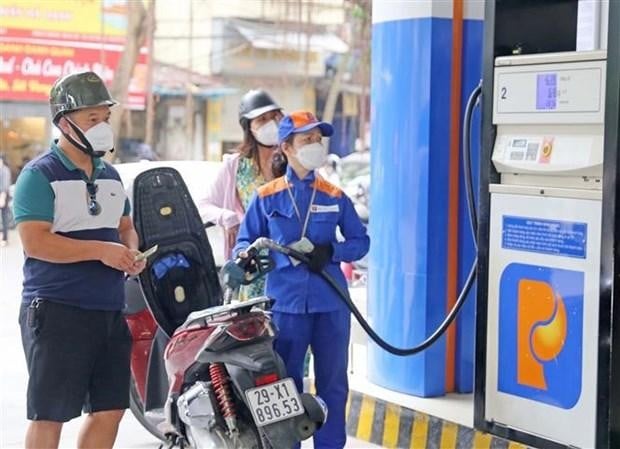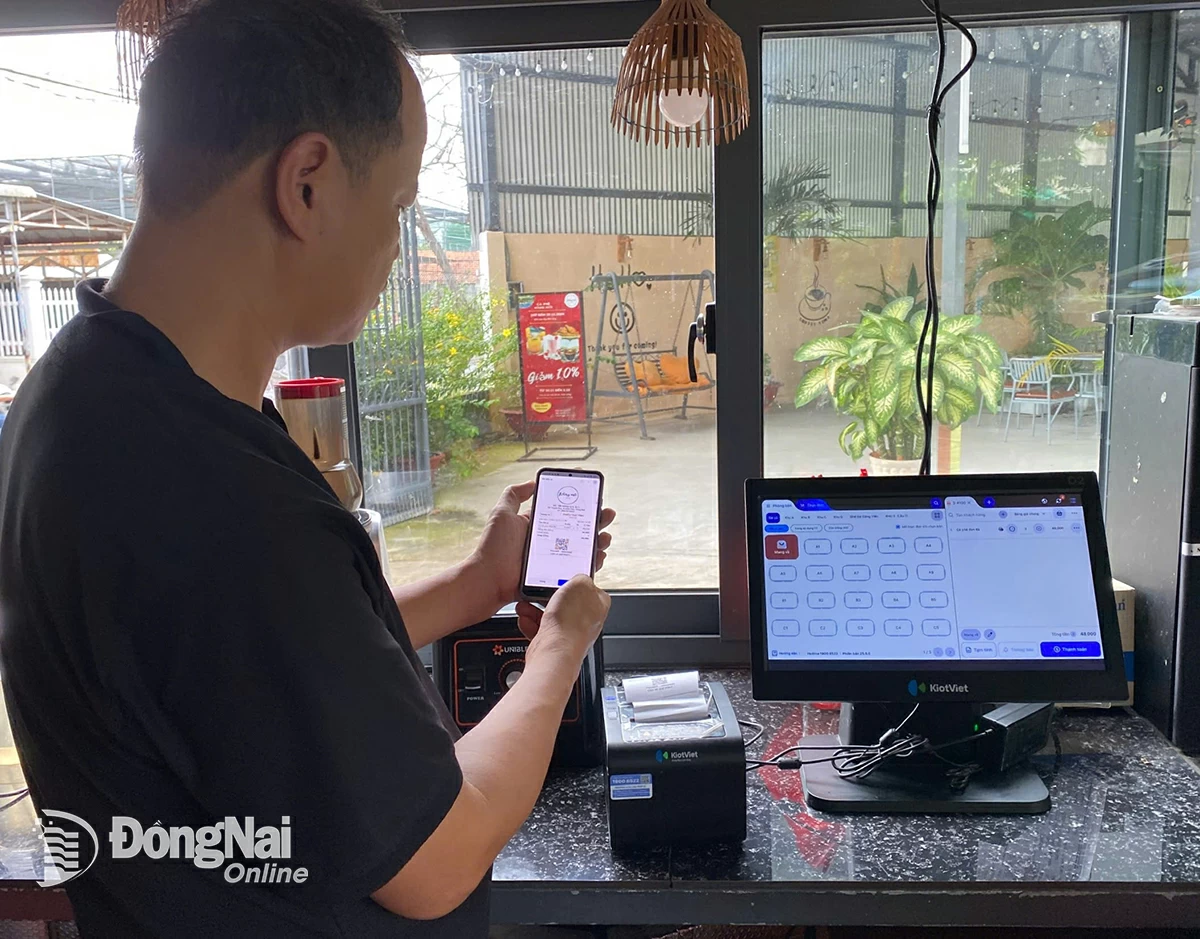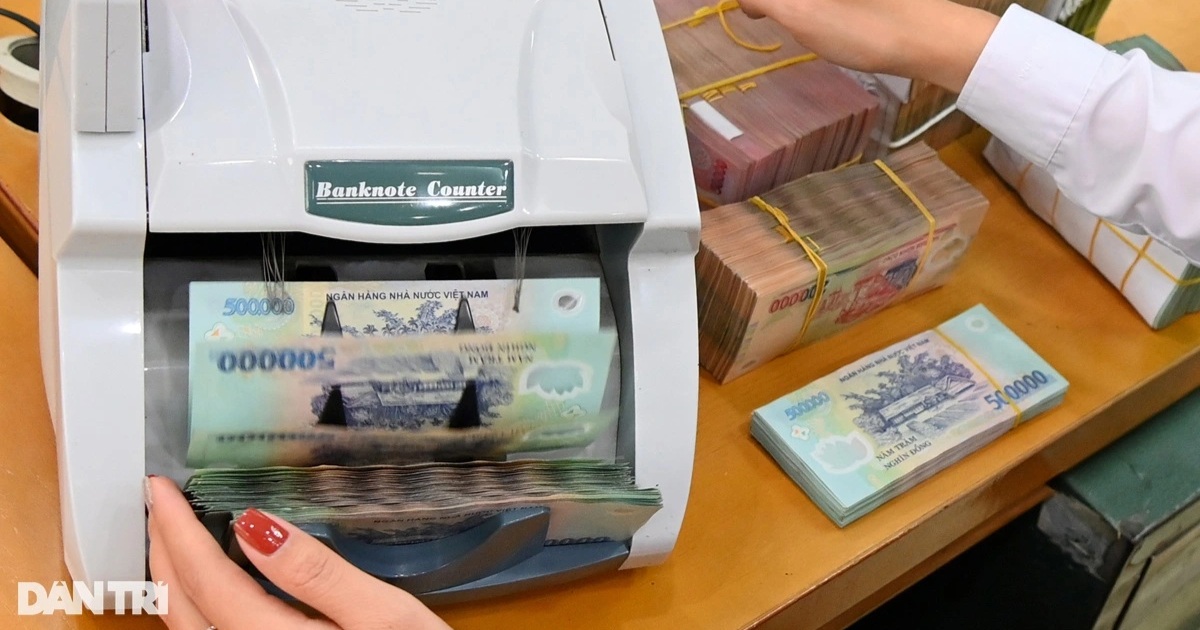ANTD.VN - Gasoline stores and businesses must issue electronic invoices after each sale in accordance with regulations. Tax authorities will increase inspection, supervision, and strictly handle violations.
The General Department of Taxation has just sent an official dispatch to local Tax Departments regarding the issue of electronic invoicing for petroleum activities.
Currently, according to the provisions of Clause 1, Article 90, Law on Tax Administration No. 38/2019/QH14, which stipulates the principles of creating, managing and using electronic invoices: "When selling goods or providing services, the seller must create an electronic invoice to deliver to the buyer in a standard data format and must fully record the content according to the provisions of the law on tax and the law on accounting, regardless of the value of each sale of goods or provision of services".
At the same time, at point i, clause 4, Article 9, Decree No. 123/2020/ND-CP dated October 19, 2020 of the Government on invoices and documents stipulates: “The time to issue an electronic invoice for the case of selling gasoline at retail stores to customers is the time when the sale of gasoline is completed for each sale. The seller must ensure that all electronic invoices are fully stored for the case of selling gasoline to customers who are non-business individuals, business individuals and ensure that they can be looked up when requested by competent authorities”.
 |
Many gas stations do not issue electronic invoices after each sale (Illustration photo) |
However, according to the General Department of Taxation, in recent times, there has been a situation where the management, issuance and use of invoices for retail gasoline stores are not in accordance with regulations.
For example: issue a total invoice at the end of the day for retail sales during the day; periodically issue an invoice to customers in large quantities every week or month;
There are even cases of selling goods without issuing invoices, not declaring and paying taxes, evading taxes, committing tax fraud, buying and selling invoices for illegal profits, causing losses to the state budget.
Therefore, to ensure compliance with legal regulations on invoice management and use, and to prevent the practice of selling without invoices, the General Department of Taxation requests the Tax Departments to urgently strengthen management, inspection and supervision, and promote the issuance of electronic invoices for each sale of gasoline and oil retail activities in the locality.
In particular, the General Department of Taxation requires tax authorities at all levels to urgently grasp the current situation of electronic invoice implementation for each sale of local petrol stations. Resolutely urge petrol stations and businesses in the area to immediately implement solutions to issue electronic invoices after each sale according to regulations.
Tax authorities at all levels must closely monitor the issuance and use of invoices in general and invoices for petroleum in particular; detect and strictly handle acts of issuing and using invoices and documents that are not in accordance with regulations.
The General Department of Taxation also requested the Tax Departments to develop detailed implementation plans and assign specific tasks and targets to each leader of the Tax Department, leader of the Tax Department, Tax Branch and each manager to resolutely promote enterprises and petrol stations to implement electronic invoices after each sale according to regulations;
Attach the responsibility for inspecting and supervising the issuance of electronic invoices for each sale of retail gasoline at each gasoline station to the emulation evaluation.
In addition, the organization exchanges and works with local petroleum business units and solution providers to share experiences in successfully implementing the issuance of electronic invoices for each sale and discuss effective solutions for businesses, thereby meeting the management requirements of state agencies on petroleum business in accordance with the provisions of law on invoices and documents.
Source link




![[Photo] General Secretary To Lam attends the 80th anniversary of Vietnam's diplomacy](https://vstatic.vietnam.vn/vietnam/resource/IMAGE/2025/8/25/3dc715efdbf74937b6fe8072bac5cb30)










































































































Comment (0)